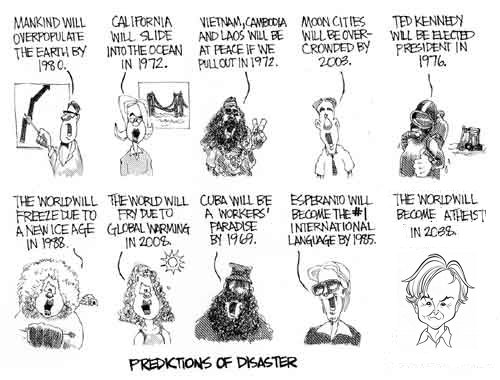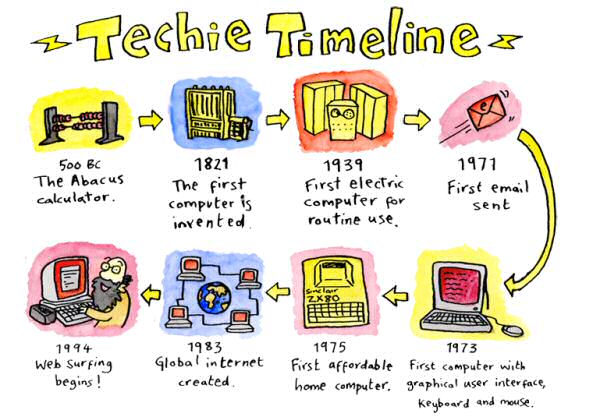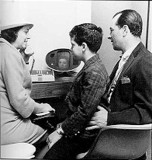Is specific technological progress predictable?
- If technological change is not deterministic, then it isn't going to be predictable.
- it doesn't follow a predetermined path--instead
technologies are shaped by the wants and needs of
society
- its impact on society is also
unpredictable--different societies can decide to use the
same technologies in different ways
- The most important inventions often aren't at first recognized as invention--people need time to decide how they want to use them
- consumer response matters as much as invention
- It is worth thinking more carefully about prediction because we are going to have to try to do it (eg. business forecasts) even if it is theoretically impossible to always be right.
- Jetsons: https://www.youtube.com/watch?v=t2Z8kPpLg1g set in 2062
- classic example of predicting future technology,
without thinking about its impact on society
- 2001: http://www.youtube.com/watch?v=q3oHmVhviO8 intended to be a realistic prediction of 2001
| prediction |
inventor, utopian
writer |
fundamentally new
devices |
long term |
| forecasting |
engineers,
entrepreneurs |
improvements on
existing technology |
less than 10 years |
| projection |
designers, marketers |
new
models |
less than 3 years |
Nye p. 34
Predictions are stories even if they aren't published as science fiction stories (another example of seeing technology as narrative to understand how we relate to technology)
- The goal is to persuade people to believe the forecasts and take some action (eg. buy my product)
- a prediction (or forecast) can be a self-fulfilling prophecy--convince people that something is going to happen and it will
- testing whether there will be support for a new
product
- Are people yet convinced enough about the predictions of global warming to take some action? (eg. pass laws to limit carbon dioxide emissions)
- can fundamentally new technologies ever be
anticipated?
- technology push--new technologies that no one expected
- demand pull--new technology that meets a clear need
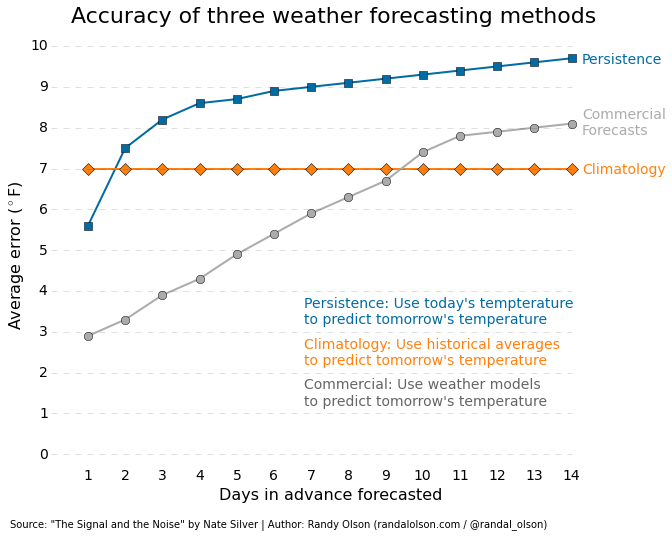
The problem of weather forecasting: it is easy to predict that a trend will continue, harder to predict new directions
- In the 1970s a Harvard professor predicted the
weather more accurately than the weather bureau simply by
predicting each day that the weather would be the same as
the day before. The chart to the right is from a
2015 book, at which point persistence was no longer better
than the commercial forecast
- Problem is, when things follow a trend that isn't very interesting--what is useful but much harder to do is predicting when the trend will change
- hardest is when a radically new way of using a technology comes along, such as the radical shift to the personal computer
- people in big companies often miss new possibilities, it is outsiders who come up with something really new
it is fairly easy to predict that someone will continue to follow a trend
it is harder to predict when the trend will
change
Bad predictions cost us in wasted investment and careers. If we look at the pattern of bad predictions we can perhaps see how to do better. (source: Herb Brody, "Great Expectations: Why Technological Predictions Go Awry" Albert H. Teich, Technology and the Future, sixth edition (New York: St. Martin's Press, 1993).)
- The people who are hoping to profit from a new technology often make the most misleading predictions. They necessarily want to promote what they are doing, but repeatedly claiming a breakthrough when the problems of commercialization are not yet solved is probably harmful even for them in the long run. Eg. high-temperature superconductors, nuclear fusion.
- Even if the technology works (eg. robots) people may not want to buy it. Who do you ask--the vendors? Obviously biassed. But consumers, even businesses buying factory equipment, may be biased too because they don't realize how attitudes towards the technology will shift (eg. fax machine).
- it also depends on how you use the technology--why would we need more powerful laptops? We may not be doing anything very complex but games and applications require more and more memory and processing speed
- can existing technologies improve to
compete with new technologies?--for a while film companies
tried to improve film to compete with digital cameras
- a successful example is the continuing interest in vinyl records and vacuum tube amplifiers.
- consumers are unwilling to spend money on small improvements, particularly if they seem inconvenient. You also need the whole system, VHS and DVD players didn't cat on until there were stores to rent videotapes or videodisks, and now those stores are almost gone and the demand is for home internet service fast enough to support streaming
- truly innovative technologies often take
10 to 25 years to enter widespread use. Brody's 1991 list of popular predictions:
- neural-network computers (still in
development)
- shirt-pocket telephones (cellphones)
- hypermedia (world wide web)
- computer-generated virtual realities (in early commercial use)
- intelligent
highway systems (replaced by self-driving cars,
which are getting close to commercial use)
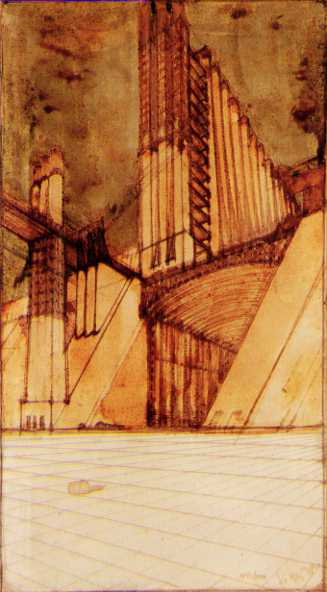
- Predictions: On the Record
Predictions or Future
Predictions,
Forecasts, and Speculations for the Coming Third
Millennium , Medical
predictions
for 2020
- two important articles: Bill Joy (chief scientist at Sun Microsystems), Why the Future Doesn't Need Us, and on the other side Overcoming Yuk
- Past
Bad Predictions and of course there is also: "I
think there is a world market for maybe five computers."
--Thomas Watson, chairman of IBM, 1943, better past
predictions.
In 1945 it would have been very hard to predict what the computer would become, but now we can see trends (even if we don't know what new technology will enable that trend to continue):
- increasing ease of use
- the first computers were extremely difficult to
use--programmed with wires and switches
- higher level programming languages
- applications
- point and click
- voice recognition
- context driven search and advertising

- the first computers were extremely difficult to
use--programmed with wires and switches
- hardware becomes smaller, cheaper, and
more capable (Moore's
Law : the number of transistors that can be fit on a
chip doubles every 18 months, with the result that the
speed of computers doubles or the price drops by
half (Moore's
Law Illustrated) .)
- semiconductors
- integrated circuits
- new forms of memory storage
- how far can this trend go? computer scientists say at least another 20 or 30 years
- do our devices get cheaper or more
capable (even if we don't more bells and whistles)
- development of new ways for computers to
handle information
- calculations
- data bases
- hypertext
- search engines--Google
- Everything is Miscellaneous
- some better way of organizing information? next generation search engines
- instead of search continuing to get better, the
next direction seems to be artificial intelligence
giving us the answer we are looking for
- interconnection
- ARPANET
- the internet connects universities
- wide public access to the internet
- integration of telephone, television, and internet (sometimes called telematics)
- but TV manufacturers seem to be going to avoid being replaced by computers by building bigger and bigger TVs
- network of smart devices
Integration of telephone, television and internet is one of those things that has been predicted as just around the corner for a long time.
- 1970 Tama New Town (Japan) experiment--this was a new development of apartment buildings outside of Tokyo which was provided with facsimile mail, interactive computer classrooms, community produced programming
- 1972 HBO is the first extra-charge cable channel
- 1976 CeeFax --a British system to make information available via television
- 1977 Qube , experimental 2-way interactive cable television installed in 30,000 homes in Columbus, Ohio. Eventually the project was declared a failure and shut down in 1983.
- 1987 Minitel (France)--eliminate the phone book and give everyone a terminal. Goal--to made the public more comfortable with computers. To the surprise of the government telephone company it was quickly used mostly for chat.
- 1979 Prestel (England)--data base maintained by the post office and available via phone lines, anyone could enter data for a fee. It became an internet service provider and then closed.
- these experiments imagined that one of the key reasons to integrate would be to have more people able to develop tv programming and to provide two way TV
- YouTube is where everyone can provide content; is that to some extent replacing TV?
- interactive television is one of those technologies that doesn't yet have its killer app (the application of a technology that convinces people to buy it)
What might computers do for us in the future? Would you want to:
- do a degree entirely online or gain education and skills for free?
- Eliminate cash?
- have access to e-mail wherever you are? smart phones have given us that but Google Glass was going to be a more seamless approach , wearable computing
- vote directly on issues? See Internet Voting.
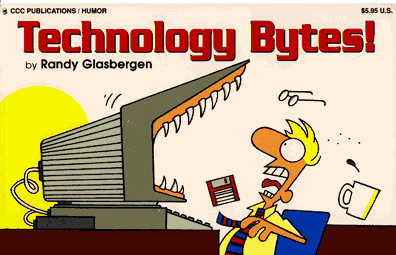
from www.borg.com
Some feasible technologies
don't catch on:

The failure of Google Glass:
The best technology doesn't always win--the classic example of this is Betamax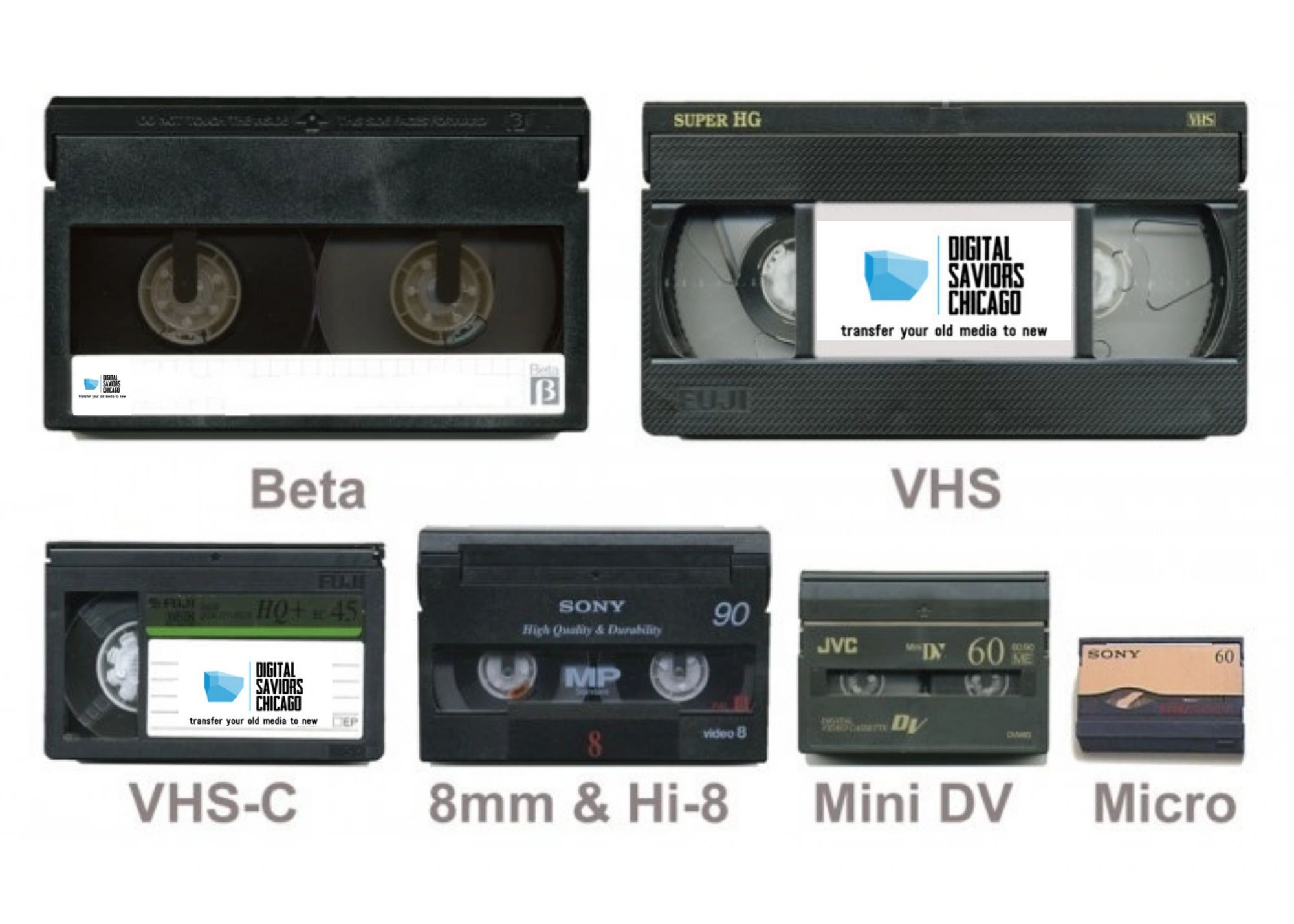
But it is clear that sometimes something very new comes along and takes us in a different direction
If we look at why future technology is hard to predict, what can that tell us about technology?
- in the 1960s and 1970s AT&T (which then had a
telephone monopoly in the U.S.) thought that picture
telephones would be the next big thing.
- Consumers weren't interested because it was an extra cost in a system where you paid for each phone call individually and because they feared loss of privacy
- a 2001 AT&T analysis of what went wrong concluded that people didn't want to be seen on the phone
- Skype was introduced in 2003, used computers
people already had
- the supersonic transport (commercial airplanes going faster than the speed of sound) hasn't been successful--the U.S. decided not to build on and the French-English Concorde is now out of use

The failure of Google Glass:
- in 2013 Google released a system to put a computer in front of your eye at all times, but in Jan 2015 they stopped selling the product
- a lot of negative publicity
- do you want more information about everything you see?
- privacy concerns as they enabled users to film whatever they were looking at
- Steve Jobs: "People don't know what they want until you show it to them." (source) But sometimes they don't need it even then.
- it caught negative cultural connotations: "glasshole"
- safety and health concerns
- will we see a new version soon?
The best technology doesn't always win--the classic example of this is Betamax

- when VCRs were first introduced there were two competing tape formats, Betamax and VHS
- Betamax is generally considered to have been technologically superior, though some disagree
- Sony didn't license its Betamax system to other manufacturers
- as a result VHS won out and Betamax disappeared
But it is clear that sometimes something very new comes along and takes us in a different direction
If we look at why future technology is hard to predict, what can that tell us about technology?
- two kinds of change--following a trend or something radically new
- some radically new technologies come from scientific discoveries, for example the atomic bomb
- an inventor with a new idea about what people might want, for example Eastman and the Kodak camera for ordinary people
- sometimes technologies aren't accepted
- sometimes the "best" technology
doesn't win
This page written and copyright
Pamela E. Mack
